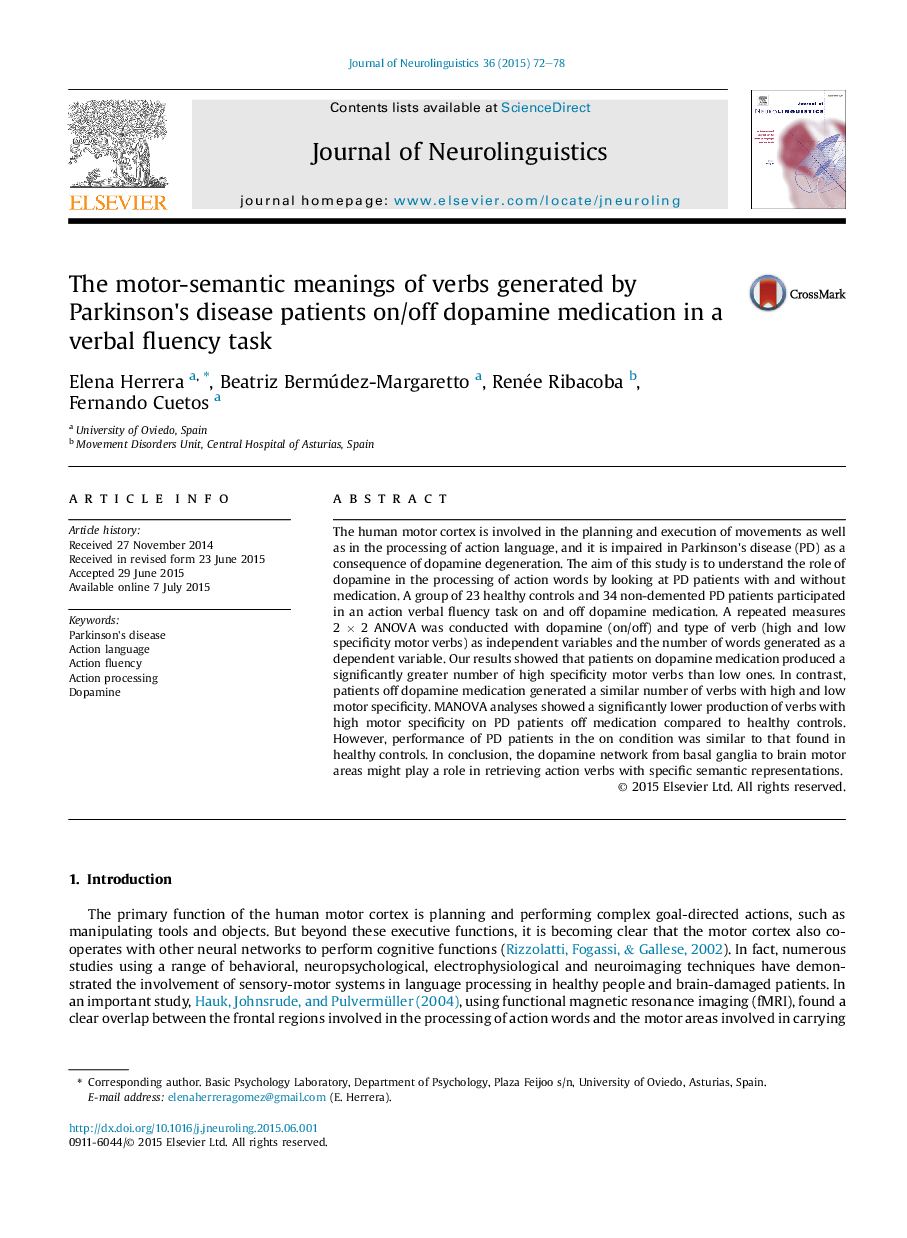| Article ID | Journal | Published Year | Pages | File Type |
|---|---|---|---|---|
| 911783 | Journal of Neurolinguistics | 2015 | 7 Pages |
•We analyzed the verbs generated during the action fluency by PD patients on/off dopamine.•PD patients off dopamine generated a lower number of verbs with high motor specificity.•Dopamine might play a role in retrieving verbs with specific semantic representations.
The human motor cortex is involved in the planning and execution of movements as well as in the processing of action language, and it is impaired in Parkinson's disease (PD) as a consequence of dopamine degeneration. The aim of this study is to understand the role of dopamine in the processing of action words by looking at PD patients with and without medication. A group of 23 healthy controls and 34 non-demented PD patients participated in an action verbal fluency task on and off dopamine medication. A repeated measures 2 × 2 ANOVA was conducted with dopamine (on/off) and type of verb (high and low specificity motor verbs) as independent variables and the number of words generated as a dependent variable. Our results showed that patients on dopamine medication produced a significantly greater number of high specificity motor verbs than low ones. In contrast, patients off dopamine medication generated a similar number of verbs with high and low motor specificity. MANOVA analyses showed a significantly lower production of verbs with high motor specificity on PD patients off medication compared to healthy controls. However, performance of PD patients in the on condition was similar to that found in healthy controls. In conclusion, the dopamine network from basal ganglia to brain motor areas might play a role in retrieving action verbs with specific semantic representations.
